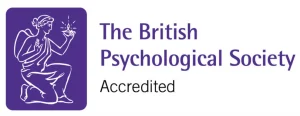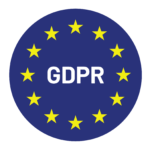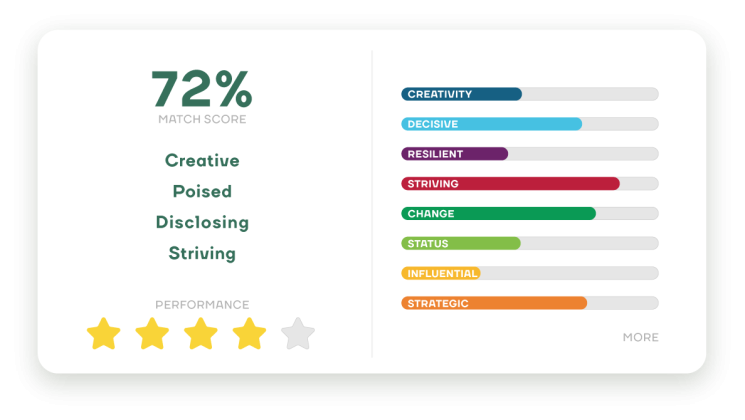Assessment Platform
The Science
Learn what's behind our assessment platform. Our accurate, science-backed talent assessments help you identify top talent and make better hiring decisions.
The Science of Clevry
Clevry has been doing great science since 1991. For over 30 years, our experienced psychometricians, psychologists, and software developers have deployed innovations in science and technology to assemble a comprehensive array of assessments supported by a market-leading technology stack.
We are pioneers in building psychometrics for the workplace, applying our research-driven models that connect psychological traits to performance-related skills and capabilities.
Deep domain expertise
Our Chief Science Officer, Dr Alan Redman, joined Clevry in 1996 and can trace his experience back to working with early pioneers in workplace psychometrics. Dr Alan is a chartered member and associate fellow of the British Psychological Society (BPS), an HCPC registered psychologist, and holds fellowship positions with UK academic and research institutions. He is also the Principal BPS Occupational Testing Verifier and a member of the BPS Committee for Test Standards.
Over his 30-year career in the industry, Alan has become a leading architect of assessment design and the fusion of psychometrics with new technologies, from desktop computing, the Internet, and now AI.
Industry standards and certifications
Our psychometrics and test-development research are periodically reviewed by the British Psychology Society against the European Federation of Psychologists Associations (EFPA) test standards. Our in-house science team performs continuous research to ensure that our assessments meet the highest psychometric standards, deliver powerful predictions of performance, and accommodate diversity and inclusion priorities, including the needs of neurodiverse assessment takers.
In terms of the reliability, resilience, and security of our technologies and assessment processes, we continue to achieve accreditation for data processing standards (ISO27001), web accessibility standards (WCAG v2.1), and Cybersecurity safeguarding (Cybersecurity Essentials Plus). We comply with UK/EU GDPR regulations to gather, process, and store your test data safely, securely, and legally.





The Science of Our Assessments
We do not restrict our psychometrics to any single psychological model of personality and cognition. We build assessments that measure the traits and capabilities that, based on our many years of research with real and successful organisations, will predict success in your jobs.
Like many organisations with a strong consulting practice track record of working with businesses and organisations, we adopt a rational approach to test development. This means we build psychometrics using an architecture with foundations from a clear evidence base. The design is guided by data from our own research, case-study results, feedback from clients, users, and candidates, systematic reviews of academic literature, and our innovation roadmap. This rational approach gives creative freedom to develop psychometrics that meet modern workplaces’ needs, unconstrained by academic dogma, fashion, or technological fads.
Our in-house psychometrics go through extensive research to ensure that they converge with well-known or empirically tested models and theories:
Five-factor theory
Our trait-based personality assessments correlate with the Big Five personality factors. This model is used extensively in academic settings and provides a benchmark for ensuring that the results of any personality assessment can be mapped onto the Big Five factors. We use the results of this research to power algorithms for users who want to transform the detailed trait scores from our psychometrics into the more basic Big-5 framework.
World Economic Forum Skills-first Framework
Assessments from our personality and cognitive tests map onto the Skills-first framework, enabling you to assess and predict the potential of your test-takers to demonstrate and develop the skills that modern organisations require for growth over the next 5-10 years.
General ability and IQ
It does matter how smart people are. You don’t need to be a rocket scientist (unless you’re applying to NASA), but we all benefit from possessing a level of mental firepower sufficient for meeting the thinking and decision-making demands of the job. We do not recommend the use of IQ tests in the workplace, but we do ensure that our tests of specific, work-related cognitive abilities correlate with measurements of more general ability or intelligence.
Emotional intelligence
The original insurgent to IQ has been around for a long time but continues to be shorthand for traits or competencies relating to effective emotional performance in organisations. We first developed our emotional style trait-based psychometrics in 1996 and were able to identify links with the personality components of the main EI models. Our personality psychometrics continue to map onto the key elements of EI, such as empathy, emotional analysis, and emotional management.
Leadership models
It sometimes feels like each new year throws up a new leadership model. LinkedIn posts are probably the most powerful engine for spawning and disseminating new leadership fads. At Clevry, we distance ourselves from chasing every new model. Instead, we draw on research and our leadership development consultancy projects delivered for organisations across many regions. We have developed our Clevry Leadership model, which measures traits, types, and potential in leadership roles. We continue to benchmark this model against substantial new developments in leadership research to ensure it continues to chime with effective leaders in successful organisations. Our leadership profile is used extensively to assess, hire and develop leaders.
Team strengths
This model first emerged in the USA in the late 1960s, based on observations and insights drawn from conducting development interventions with teams in US businesses. Because it is a type-based model, we can generate results from our trait-based assessments to produce a team strengths profile. Our personality questionaries will provide insights into how team members combine their styles and strengths to deliver success at a team level.
Never mind the science – why do our assessments work for you?
The science is fundamental, which is why we devote so much time, energy, and expertise to taking care of it for you. But it’s the practical, real-world, and human factors that really make the difference. So, we temper the science with assessment design measures that explicitly target the things that make them work for you:
Candidate friendliness
When people don’t like a test, it doesn’t measure accurately. All our assessment content is developed with this in mind. We keep content positive, work-relevant, and upbeat; we avoid tough time limits; we make sure feedback is available in a format that can be put in the test-taker’s hands; we make sure that the assessments make sense to people – they can see a clear link with the job, feel motivated to give it their best, and maybe even enjoy and learn from it.
Candidate experience
If the user interface is frustrating, the test won’t work. We develop, monitor, and refine our candidate journey to deliver an accessible, slick, frictionless, and engaging experience for all test-takers. The number of clicks and pages is minimised. Instructions are clear and straightforward. The look and feel is clean and contemporary.
Tech stack
Hosted in a Microsoft Azure solution to ensure resilience, robustness, and security. We integrate with a wide range of third-party platforms to provide seamless candidate and data workflows.
Performance prediction as the first principle
Whether you’re using psychometrics for selection and development, they’ve got one job to do – predict performance in the job. The term ‘validation’ is sometimes casually tossed about without acknowledging a central truth. It’s really, really difficult. But we persevere because we care about science, but primarily because we want our psychometrics to work for you. We validate our own stuff; we will validate your results. We want to make sure these things work for you.
Diversity, inclusion, fairness
Tests only work when they work for everyone. We consider and balance the design and content of our tests with the demands and responsibilities of the job to which it relates. We follow the principle that if someone can do the job, they must be able to do the test. If someone requires a reasonable adjustment to do the job, we ensure the reasonable adjustment can be applied to the test. Our technology helps us adhere to this principle; our tests are fully accessible across devices and comply with the latest, industry-standard adjustability requirements. But we go further. When we design tests, we bake in features that will level the playing field across all test takers and avoid traditional testing traps that can allow bias to seep into your assessments.
But what about AI?
We are excited by the potential of AI to enhance our assessments further while changing the world of work (for the better…). But we are wary of the dangers, too. That’s why we guarantee that none of our assessments employ AI techniques that may negatively affect the candidate experience, make biased decisions, or open you up to legal challenges under evolving AI laws. All our assessments and algorithms are transparent and explainable with no machine-learned hocus-pocus or opaque statistically derived scoring.
Documentation for Clevry's personality assessments
The Science
Platform Documentation
We are happy to provide you with further documentation about our products and services. Please contact us for more information.
Some of the most commonly asked information sheets are:
- Information sheets
- Norm groups
- Validity and reliability
- Accessibility and neurodiversity
- Security, privacy and GDPR
- Ability tests
- Personality questionnaires
- Situational judgement tests



